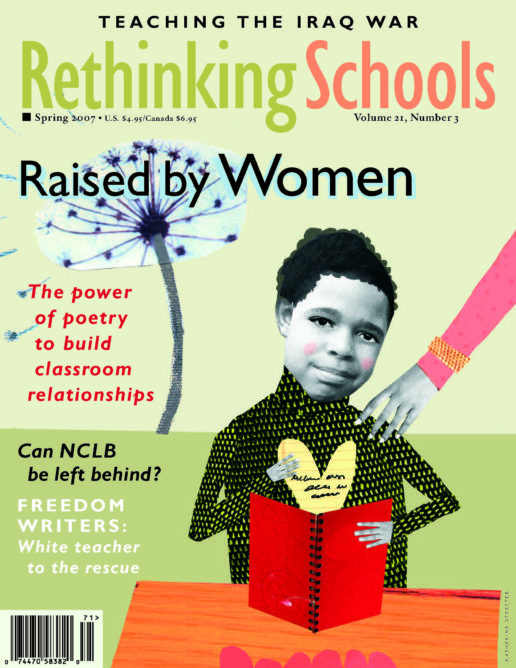On the Question of Mexicanidad
Encouraging prospective teachers to examine their cultural heritage
Illustrator: Collection of SFMOMA / Estate of Tina Modotti

Photo: Collection of SFMOMA / Estate of Tina Modotti
As an Anglo professor teaching
mostly Mexican-American preservice schoolteachers on the Tex-Mex border, I try to lead my students to a deeper understanding of multicultural education. Among other things, this implies reflecting on one’s own cultural identity, its relationship to other identities, and how such factors affect students’ engagement with school.
I also stress that an engaged teacher is one willing to make him/herself vulnerable before students. Trust is a key element in the construction of a learning community; if we ask students to reveal personal aspects of themselves in their reflections, we teachers must be willing to do the same. The multicultural classroom should constitute a “safe space” where students and professors can freely discuss conflicts, questions, and breakthroughs.
In October of 2006, during a course on Multicultural Education in Secondary School, I had two students read aloud the poem “On the Question of Race” by Quique Aviles and Michelle Banks, from the book Beyond Heroes and Holidays. Adopting the teaching suggestions of the book’s editors (Enid Lee, Deborah Menkart, and Margo Okazawa-Rey), I asked students to write lists of the ancestors and images they carry inside them as part of their cultural and family heritage. I invited them to craft their submission in the form of a poem if they wished, but did not require them to do so. As the Beyond Heroes and Holidays editors noted, even simple lists, when built around elements of personal significance, often sound poetic when read aloud.
I asked the students to post their writings on the course’s online discussion board, or to e-mail them to me if they did not feel comfortable making them public. In the online discussion format, students could reply either publicly or only to the author. This not only allowed students to reflect more carefully on classmates’ writing, but also avoided the embarrassment that might have arisen from having one’s poetry scrutinized or lauded in the face-to-face setting of the classroom.
By the following week, several students had posted their writings. These included unassuming yet evocative lists of people and scenes from students’ pasts, as well as more consciously crafted poems. As the students read each other’s writing online, some also posted admiring or reflective comments on their classmates’ work. At our next class meeting, a few students acceded to my request to read their writings aloud.
One young woman, who had always been quiet in class, produced the powerful poem printed on page 19. In addition to being deeply moved by Jeannette’s writing, I realized that, before this assignment, I had viewed her as an unremarkable and not very interesting student. Despite my exhortations to the class to avoid making assumptions based on how well their pupils conformed to the expectations of academia, I had allowed Jeannette to fall between the cracks of my awareness. In a class with several outspoken students, my enthusiasm for some voices had left me deaf to others that were less audible, but no less valuable.
This exercise gave students an opportunity to build trust and deepen their classroom relationships by sharing personal information, validating each others’ reflections, supporting each other’s poetic efforts, and drawing connections to their own experiences. Not only did this strengthen our learning community, it also gave students a chance to glimpse, in a personal and evocative manner, the myriad ways that they and their peers live out their mexicanidad. I wrapped the exercise by sharing my hope that students would use this and similar techniques to kindle their own pupils’ reflections on identity, history, and the rich juxtapositions and contradictions that come with growing up on both sides of the border.

